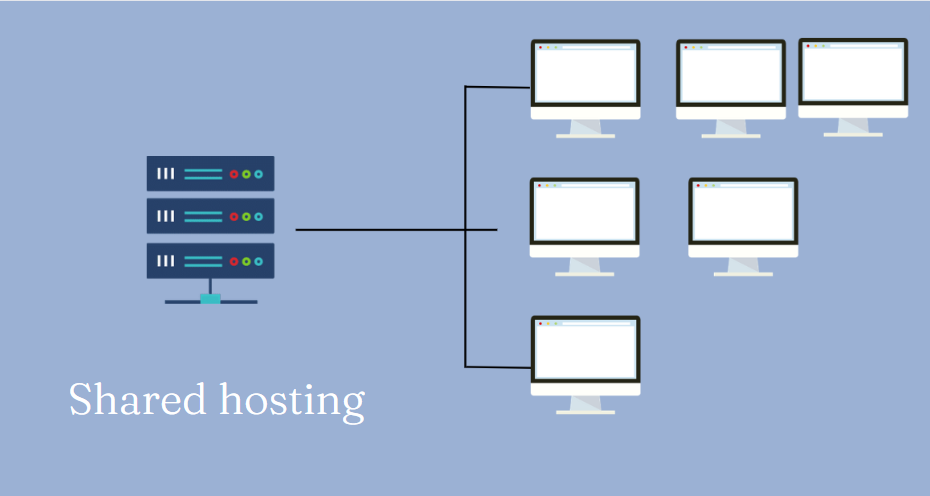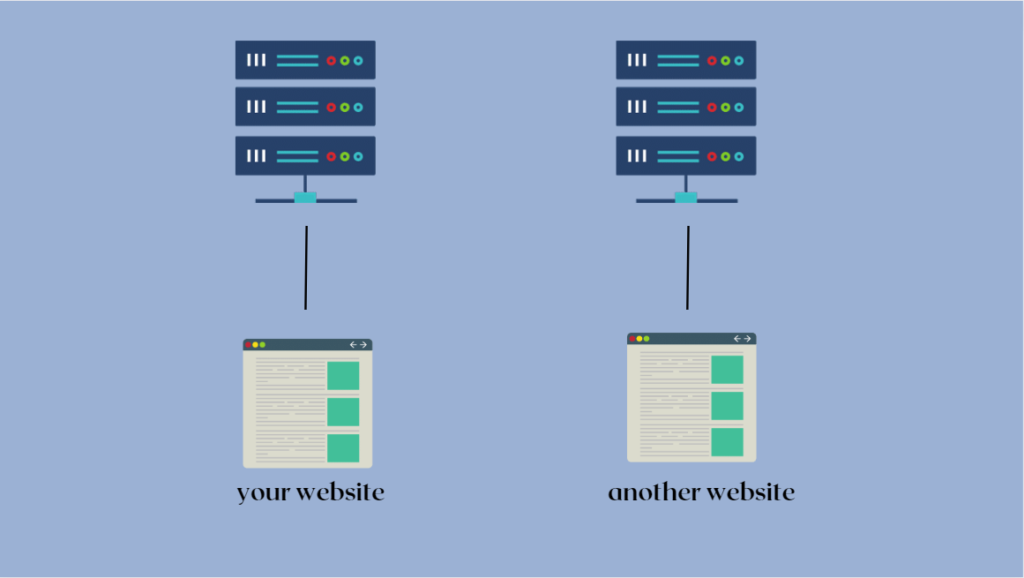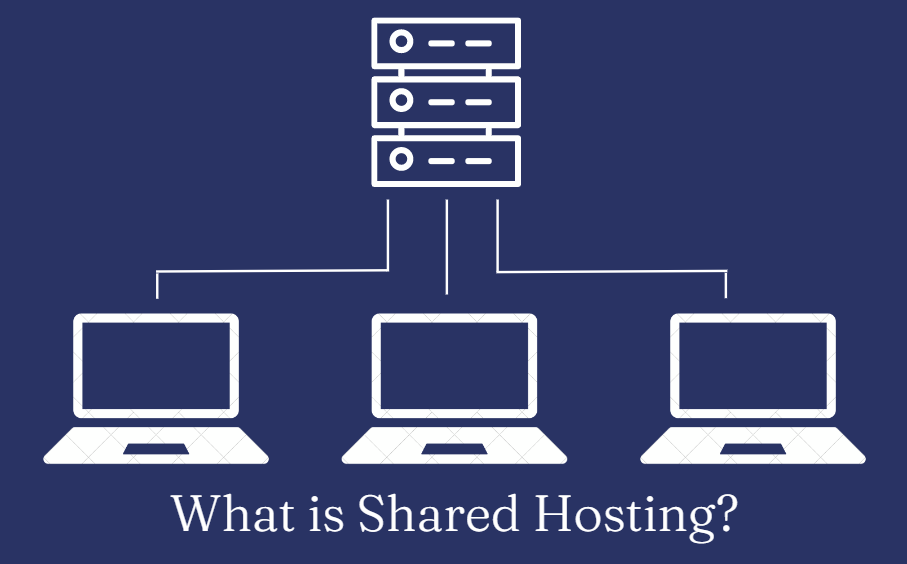What is Shared Hosting? The 3 Best Hosting Providers in 2023
- What is shared hosting?
- Pros&Cons of shared hosting
- Which features to have in your shared hosting package
- The 3 best hosting companies
- Tips for choosing a provider
- Other types of hosting services
- Conclusion
Have you ever wondered: What is shared hosting?
Stay with us, because you will find out everything about: The benefits of shared hosting and the best hosting providers. As a bonus, I’m going to give you a few tips on how to choose the right fit for you.
What is shared hosting?

Shared hosting is a type of web hosting where multiple websites are hosted on a single physical server and shares its resources, such as memory, CPU, and disk space.
This means that the server’s resources are divided among multiple websites, thus making it an affordable option for website owners who don’t need dedicated server resources.
Shared hosting companies typically offer easy-to-use control panels, as well as pre-installed software, and technical support to help users manage their websites.
However, because multiple sites share the same server resources, the performance and security of one website can be affected by other websites on a shared server.
6 benefits of shared web hosting
1.) Cost-effective
Shared hosting is usually the most affordable web hosting option available since the cost of maintaining the server is divided among multiple users.
2.) Easy to use
Providers typically offer user-friendly control panels therefore it is easy for users to manage their websites without requiring advanced technical skills.
3.) Low maintenance
Since the hosting provider manages the server and performs necessary maintenance, website owners don’t have to worry about server administration or updates.
4.) Scalability
Shared hosting offers upgrade options, allowing website owners to easily scale up their hosting resources as their website grows.
5.) Technical support
Web hosting companies typically offer support to help users with hosting-related issues or questions.
6.) Pre-installed software
Moreover, they often include pre-installed software, such as content management systems (CMS) or e-commerce platforms, making it easy for users to get their websites up and running quickly.
What you should aim for in shared hosting
After discussing what shared hosting is, it’s important to consider what to look for when selecting a hosting service provider. Your website’s performance, data safety, and traffic largely depend on your hosting provider, so here are some key parameters to check:
- Storage space: The amount of physical disk space provided for your databases, files, and media depends on the size of your website.
- Bandwidth: The amount of data that can be uploaded and downloaded by your visitors. While many web hosting companies offer unlimited bandwidth, data transfer speeds can lag if the hardware is insufficient.
- Uptime: Your website needs to be accessible to visitors at all times. Most hosting providers guarantee 99% uptime, but you should aim for 99.9% or higher. You can monitor uptime to ensure reliability.
- Customer support: If you’re new to hosting or lack technical skills, 24/7 customer support can be crucial.
- Security: Cheap hosting plans may skimp on security features, so look for providers with robust security measures to keep your data safe.
- Easy-to-use dashboard: A user-friendly control panel can make it convenient to manage your website. Check for pre-installed apps and eCommerce features relevant to your website.
- Database and programming language: Ensure the server supports a variety of databases, for example, MySQL, and programming languages (PHP) to accommodate future upgrades or changes.
- Domain name: Some hosting providers offer domain name services, possibly free domain names as an add-on. This is even more convenient if you want to manage your website and domain from one place.
See our article about domain names and their costs (including free domain).
It’s also important to consider your website’s growth and ensure your hosting provider can scale accordingly. As long as you keep these parameters in mind, you can choose a shared hosting provider that meets your website’s needs.
Compare the best shared hosting providers
| Hosting Provider | Starting Price | Rating |
|---|---|---|
| Bluehost | $2.95 / month | 4.2 based on 26,000+ reviews |
| DreamHost | $2.95 / month | 4.4 based on 1,300+ reviews |
| SiteGround | $4.99 / month | 4.6 based on 12,000+ reviews |
3 best shared hosting providers
1.) Bluehost

A web hosting company that offers various web hosting services and plans, including shared web hosting, WordPress hosting, VPS hosting, as well as dedicated hosting, and e-commerce hosting. It is a popular choice for website owners and businesses of all sizes since it offers reliable services, user-friendly features, and 24/7 customer support.
Features included in shared hosting plans:
- One website: You can host one website on this plan.
- 50 GB SSD storage
- Unlimited bandwidth
- Free domain name
- Free SSL certificate
- Standard performance
- 24/7 customer support
- One-click WordPress installation
- $100 Google Ads credit
The shared hosting package is called the Basic plan at Bluehost.
2.) DreamHost

DreamHost also has various hosting services. It hosts over 1.5 million websites, blogs, and applications, besides it is known for its commitment to open-source software and providing affordable, high-quality hosting.
Features included in shared hosting plans:
- Unlimited traffic, storage, and websites
- Free domain name for the first year
- Unlimited email addresses
- Free privacy protection
- Let’s Encrypt SSL certificate
- 1-click WordPress installation
- Custom control panel
- 24/7 customer support via live chat and email
- 97-day money-back guarantee.
3.) SiteGround

SiteGround offers all the different hosting services you find in this article, also for individuals and businesses. The web hosting company is known for its reliable and fast hosting, as well as its excellent customer support. Unlike the others, it has data centers in multiple locations around the world, including the United States, Europe, and Asia-Pacific, which allows them to offer its customers a range of hosting options with optimized performance for their location.
Features included in Shared hosting plans:
- Website Builder
- Free Website Migration
- Free SSL Certificate
- Unlimited MySQL Databases
- Free Content Delivery Network (CDN)
- Daily Backups
- Email Accounts
- 24/7 Customer Support
- Multiple Server Locations
- 30-Day Money-Back Guarantee
Its shared hosting plan is called the StartUp plan.
6 tips to choose a hosting provider
Choosing a hosting service can be overwhelming, especially if you’re new to website hosting. Here are some steps to help you make the right decision:
1.) Determine your needs
Consider your website’s size, traffic, and future growth. A small blog may require different hosting resources than a large e-commerce site.
2.) Research hosting companies
Read reviews and compare plans from different providers. Then look for shared hosting companies with a good reputation for reliability, performance, and customer support.
3.) Evaluate features
See all the features offered by each provider, such as storage, bandwidth, uptime, customer support, security, and ease of use. Some providers may offer additional features like website builders or free domain names.
4.) Check pricing and plans
Compare pricing and plans to find one that fits your budget and needs. Keep in mind that some providers may offer lower prices but with fewer features or less reliable performance.
5.) Look for customer support
Make sure the provider offers reliable customer support, whether it’s 24/7 chat or phone support, a knowledge base, or a community forum.
6.) Consider scalability
Look for a shared hosting company that can easily keep up with your website’s growth. Some providers offer scalable plans therefore you can upgrade resources as your website grows.
Other common types of web hosting services
If you are not keen on shared hosting, take a look at other types of services you can use for your website:
#VPS Hosting

Virtual Private Server a.k.a. VPS is a type of hosting where a single physical server is divided into multiple virtual servers. Each VPS has its own dedicated resources, providing more control and flexibility than shared hosting.
#Dedicated Hosting

Dedicated server hosting is a hosting solution where a website has an entire (a.k.a. dedicated) server to itself. This provides maximum control, flexibility, as well as customization options. Dedicated hosting is ideal for large websites with high traffic volumes and resource-intensive applications.
#Cloud Hosting

With cloud hosting multiple servers work together to provide hosting. This provides high availability, scalability, and flexibility, altogether making it ideal for websites with fluctuating traffic volumes.
Check out our article on web hosting for more information about hosting services.
Conclusion
Choosing the right web host is generally important for the success of your website. Shared hosting can be an excellent option for small and medium-sized websites, providing an affordable and user-friendly solution.
Bluehost, DreamHost, and SiteGround are all reputable web hosts that offer shared hosting plans with different features and pricing.
By taking a close look at what you require and comparing the services provided by various hosting companies, as a result, you can discover the shared hosting plan that fits best for your website
Frequently Asked Questions
Hosting refers to the provision of computing resources such as servers and storage devices for the purpose of hosting websites or applications. Shared hosting, on the other hand, is a type of hosting where multiple websites share resources on the same server. Essentially, shared hosting is a subset of hosting.
Yes, shared hosting can be a good option for small websites with low to moderate traffic. It’s affordable, easy to use, and comes with technical support. However, it may have some limitations in terms of resources and security, and may not be suitable for larger or more complex websites with high traffic. It’s important to evaluate your needs and compare the offerings of different providers to find the right hosting solution for your website.
